Books
George Smiley books: a series guide
Wondering where to start with John le Carré’s George Smiley books? Reader and lifelong fan Simon Hawkins shares his insights…
John le Carré has been writing about George Smiley for six decades. In fact, his very first novel, Call for the Dead, saw Smiley as its hero – if le Carré’s novels can ever be said to feature such simple creatures as heroes and villains.
While Call for the Dead was well received, it did not turn le Carré or Smiley into household names. We had to wait for 1963’s international bestseller The Spy Who Came in from the Cold (in which Smiley appears only briefly but crucially) for the world to discover John le Carré. A decade later, in 1974’s Tinker Tailor Soldier Spy, readers met the Smiley they would take to their hearts: the plain, bespectacled civil servant who would relentlessly hunt a mole or follow a lead to the ends of the earth.
Fast-forward forty or so years to 2018 and the reader yet to discover George Smiley may rightly ask, where should I begin? At the very beginning, when le Carré is finding his feet as a novelist? In the triumphant middle, where le Carré perfectly caught the frigid temperatures of the Cold War? Or at the end, with his most recent novel, A Legacy of Spies, bringing Smiley back for a final curtain call now that the Iron Curtain is but a distant memory?
If you’re looking for a tale with fewer spies and a little more mystery, then Call for the Dead and A Murder of Quality could both be for you. Call for the Dead sees Smiley investigating the apparent suicide of Samuel Fennan, who works at the Foreign Office. Fennan had been anonymously accused of being a communist and Smiley had cleared him. Now he’s dead. Smiley is convinced it’s murder. This novel features a young physical Smiley prepared to get his hands dirty and has an extraordinary, brutal and heartbreaking denouement on Battersea bridge.
A Murder of Quality is a fascinating story of detection, which just happens to have George Smiley the spy as its sleuth. It’s set around the ancient public school of Carne, where Stella Rhode has been murdered. Rhode apparently feared that her husband, a teacher at the school, wanted to kill her. Smiley’s investigation instead uncovers myriad petty hatreds and secrets lurking within the shadowy cloisters of this ancient institution.
In his next two novels – The Spy Who Came in from the Cold and The Looking-Glass War – le Carré placed Smiley behind the scenes while other less cunning and worldly agents took centre stage in brilliant and extraordinarily tense examinations of the reality of the spying game in the aftermath of the Second World War. The Spy Who Came in from the Cold tells of a disillusioned British agent making one last play to destroy his East German nemesis. It is a book of twists and turns that exposes the remorseless logic at the heart of the Cold War. The Looking-Glass War, on the other hand, sees an old, fading WWII department launching a mission to demonstrate they still have relevance. The consequences for all involved and Smiley’s part in trying to contain them prove devastating.
It might have seemed as if Smiley’s best days were long behind him by the seventies, when he was retired and put out to pasture. But the Cold War was then at its most chill. With Britain reeling from the exposure of numerous spies as double agents, it was the perfect time for the Karla trilogy – Tinker Tailor Soldier Spy, The Honourable Schoolboy and Smiley’s People – in which Smiley was brought out of retirement to discover the mole at the heart of British Intelligence. Not only are these brilliantly tense spy stories as well as portraits of a dark time not so long ago, but they are also the novels that cast a heavy shadow over every other spy story written since. There are no heroes in these stories; there are only people trapped by terrible circumstances, yet trying to do their very best.
This brings us to the last two Smiley stories published. 1990’s The Secret Pilgrim and last year’s A Legacy of Spies. In each case we draw lessons from old operations and discover secrets that perhaps were best left undisclosed – as far as those most wounded by them believe. The Secret Pilgrim sees Smiley helping out an old friend at the training academy, offering sage advice to the students about life as a spy as we learn more of missions that went well or, more often, awry. A Legacy of Spies, however, revisits one of the most painful episodes in Smiley’s life working for British Intelligence and sees the old spook and his associates raked over the coals by a modern world that sees the Cold War in a very different light to those who endured it.
So those are your nine choices. You have detective Smiley, cold warrior Smiley, Smiley the avenging angel and Smiley the wise man. If I were you, I’d begin at the beginning and discover how one man changes as the world around him keeps changing. The great consistency is the breathtaking brilliance of John le Carré’s characterisation and writing.
Intrigued? Read on for a taste of the George Smiley books…
…from Call for the Dead: chapter 5
Smiley was tired, deeply, heavily tired. He drove slowly homewards. Dinner out tonight. Something rather special. It was only lunch-time now – he would spend the afternoon pursuing Olearius across the Russian continent on his Hansa voyage. Then dinner at Quaglino’s, and a solitary toast to the successful murderer, to Elsa perhaps, in gratitude for ending the career of George Smiley with the life of Sam Fennan.
He remembered to collect his laundry in Sloane Street, and finally turned into Bywater Street, finding a parking space about three houses down from his own. He got out carrying the brown paper parcel of laundry, locked the car laboriously, and walked all round it from habit, testing the handles. A thin rain was still falling. It annoyed him that someone had parked outside his house again. Thank goodness Mrs Chapel had closed his bedroom window, otherwise the rain would have…
He was suddenly alert. Something had moved in the drawing-room. A light, a shadow, a human form; something, he was certain. Was it sight or instinct? Was it the latent skill of his own tradecraft which informed him? Some fine sense or nerve, some remote faculty of perception warned him now and he heeded the warning.
Without a moment’s thought he dropped his keys back into his overcoat pocket, walked up the steps to his own front door and rang the bell.
It echoed shrilly through the house. There was a moment’s silence, then came to Smiley’s ears the distinct sound of footsteps approaching the door, firm and confident. A scratch of the chain, a click of the Ingersoll latch and the door was opened, swiftly, cleanly.
Smiley had never seen him before. Tall, fair, handsome, thirty-five odd. A light grey suit, white shirt and silver tie – habillé en diplomate. German or Swede. His left hand remained nonchalantly in his jacket pocket.
Smiley peered at him apologetically:
‘Good afternoon. Is Mr Smiley in, please?’
The door was opened to its fullest extent. A tiny pause.
‘Yes. Won’t you come in?’
For a fraction of a second he hesitated. ‘No thanks. Would you please give him this?’
He handed him the parcel of laundry, walked down the steps again, to his car. He knew he was still being watched. He started the car, turned and drove into Sloane Square without a glance in the direction of his house. He found a parking space in Sloane Street, pulled in and rapidly wrote in his diary seven sets of numbers. They belonged to the seven cars parked along Bywater Street.
What should he do? Stop a policeman? Whoever he was, he was probably gone by now. Besides there were other considerations. He locked the car again and crossed the road to a telephone kiosk. He rang Scotland Yard, got through to Special Branch and asked for Inspector Mendel. But it appeared that the Inspector, having reported back to the Superintendent, had discreetly anticipated the pleasures of retirement and left for Mitcham. Smiley got his address after a good deal of prevarication, and set off once more in his car, covering three sides of a square and emerging at Albert Bridge. He had a sandwich and a large whisky at a new pub overlooking the river and a quarter of an hour later was crossing the bridge on the way to Mitcham, the rain still beating down on his inconspicuous little car.
He was worried, very worried indeed.
…from Tinker Tailor Soldier Spy: chapter 23
Through the remainder of that same night, the light in the dormer window of Mr Barraclough’s attic room at the Islay Hotel burned uninterrupted. Unchanged, unshaven, George Smiley remained bowed at the major’s table, reading, comparing, annotating, cross-referring, all with an intensity which, had he been his own observer, would surely have recalled for him the last days of Control on the fifth floor at Cambridge Circus.
Shaking the pieces, he consulted Guillam’s leave rosters and sick lists going back over the last year and set these beside the overt travel pattern of Cultural Attaché Aleksey Aleksandrovich Polyakov, his trips to Moscow, his trips out of London as reported to the Foreign Office by Special Branch and the immigration authorities.
He compared these again with the dates when Merlin apparently supplied his information and, without quite knowing why he was doing it, broke down the Witchcraft reports into those which were demonstrably topical at the time they were received, and those which could have been banked a month, two months before, either by Merlin or his controllers, in order to bridge empty periods: such as think pieces, character studies of prominent members of the administration, scraps of Kremlin tittle-tattle which could have been picked up any time and saved for a rainless day.
Having listed the topical reports, he set down their dates in a single column and threw out the rest. At this point, his mood could best be compared with that of a scientist who senses by instinct that he is on the brink of a discovery and is awaiting any minute the logical connection. Later, in conversation with Mendel, he called it ‘shoving everything into a test tube and seeing if it exploded’. What fascinated him most, he said, was the very point which Guillam had made regarding Alleline’s grim warnings about muddied pools: he was looking, in other terms, for the ‘last clever knot’ which Karla had tied in order to explain away the precise suspicions to which Irina’s letter had given shape.
He came up with some curious preliminary findings. First, that on the nine occasions when Merlin had produced a topical report, either Polyakov had been in London or Toby Esterhase had taken a quick trip abroad. Second, that over the crucial period following Tarr’s adventure in Hong Kong this year, Polyakov was in Moscow for urgent cultural consultations; and that soon afterwards Merlin came through with some of his most spectacular and topical material on the ‘ideological penetration’ of the United States, including an appreciation of Centre’s coverage of the major American intelligence targets.
Backtracking again, he established that the converse was also true: that the reports he had discarded on the grounds that they had no close attachment to recent events were those which most generally went into distribution while Polyakov was in Moscow or on leave.
And then he had it.
No explosive revelation, no flash of light, no cry of ‘Eureka’, phone calls to Guillam, Lacon, ‘Smiley is a world champion’. Merely that here before him, in the records he had examined and the notes he had compiled, was the corroboration of a theory which Smiley and Guillam and Ricki Tarr had that day from their separate points of view seen demonstrated: that between the mole Gerald and the Source Merlin there was an interplay that could no longer be denied; that Merlin’s proverbial versatility allowed him to function as Karla’s instrument as well as Alleline’s. Or should he rather say, Smiley reflected – tossing a towel over his shoulder and hopping blithely into the corridor for a celebratory bath – as Karla’s agent? And that at the heart of this plot lay a device so simple that it left him genuinely elated by its symmetry. It had even a physical presence: here in London, a house, paid for by the Treasury, all sixty thousand pounds of it; and often coveted, no doubt, by the many luckless taxpayers who daily passed it by, confident they could never afford it and not knowing that they had already paid for it. It was with a lighter heart than he had known for many months that he took up the stolen file on Operation Testify.
…from Smiley’s People: chapter 24
Grigoriev was a hooked fish: Smiley had only moments in which to decide how best to land him. He wore rimless spectacles and was running to fat round the chin. His hair oil, warmed by the heat of his body, gave out a lemon vapour. Still kneading his shoulder, he started peering round at his captors. Sweat was falling from his face like raindrops.
‘Where am I?’ he demanded truculently, ignoring Smiley and selecting Toby as the leader. His voice was hoarse and high pitched. He was speaking German, with a Slav sibilance.
Three years as First Secretary (Commercial), Soviet Mission to Potsdam, Smiley remembered. No apparent intelligence connection.
‘I demand to know where I am. I am a senior Soviet diplomat. I demand to speak to my Ambassador immediately.’
The continuing action of his hand upon his injured shoulder took the edge off his indignation.
‘I have been kidnapped! I am here against my will! If you do not immediately return me to my Ambassador there will be a grave international incident!’
Grigoriev had the stage to himself, and he could not quite fill it. Only George will ask questions, Toby had told his team. Only George will answer them. But Smiley sat still as an undertaker; nothing, it seemed, could rouse him.
‘You want ransom?’ Grigoriev called, to all of them. An awful thought appeared to strike him. ‘You are terrorists?’ he whispered. ‘But if you are terrorists, why do you not bind my eyes? Why do you let me see your faces?’ He stared round at de Silsky, then at Skordeno. ‘You must cover your faces. Cover them! I want no knowledge of you!’
Goaded by the continuing silence, Grigoriev drove a plump fist into his open palm and shouted ‘I demand’ twice. At which point Smiley, with an air of official regret, opened a notebook on his lap, much as Kirov might have done, and gave a small, very official sigh:
‘You are Counsellor Grigoriev of the Soviet Embassy in Berne?’ he asked in the dullest possible voice.
‘Grigoriev! I am Grigoriev! Yes, well done, I am Grigoriev! Who are you, please? Al Capone? Who are you? Why do you rumble at me like a commissar?’
‘Commissar’ could not have described Smiley’s manner better: it was leaden to the point of indifference.
‘Then, Counsellor, since we cannot afford to delay, I must ask you to study the incriminating photographs on the table behind you,’ Smiley said, with the same studied dullness.
‘Photographs? What photographs? How can you incriminate a diplomat? I demand to telephone my Ambassador immediately!’
‘I would advise the Counsellor to look at the photographs first,’ said Smiley, in a glum, regionless German. ‘When he has looked at the photographs, he is free to telephone whomever he wants. Kindly start at the left,’ he advised. ‘The photographs are arranged from left to right.’
A blackmailed man has the dignity of all our weaknesses, Smiley thought, covertly watching Grigoriev shuffling along the table as if he were inspecting one more diplomatic buffet. A blackmailed man is any one of us caught in the door as we try to escape the trap. Smiley had arranged the layout of the pictures himself; he had imagined, in Grigoriev’s mind, an orchestrated succession of disasters. The Grigorievs parking their Mercedes outside the bank. Grigorieva, with her perpetual scowl of discontent, waiting alone in the driving seat, clutching the wheel in case anyone tried to take it from her. Grigoriev and little Natasha in long shot, sitting very close to each other on a bench. Grigoriev inside the bank, several pictures, culminating in a superb over-the-shoulder shot of Grigoriev signing a cashier’s receipt, the full name Adolf Glaser clearly typed on the line above his signature. There was Grigoriev looking uncomfortable on his bicycle, about to enter the sanatorium; there was Grigorieva roosting crossly in the car again, this time beside Gertsch’s barn, her own bicycle still strapped to the roof. But the photograph that held Grigoriev longest, Smiley noticed, was the muddy long shot stolen by the Meinertzhagen girls. The quality was not good but the two heads in the car, though they were locked mouth to mouth, were recognisable enough. One was Grigoriev’s. The other, pressed down on him as if she would eat him alive, was little Natasha’s.
‘The telephone is at your disposal, Counsellor,’ Smiley called to him quietly, when Grigoriev still did not move.
But Grigoriev remained frozen over this last photograph, and to judge by his expression, his desolation was complete. He was not merely a man found out, thought Smiley; he was a man whose very dream of love, till now vested in secrecy, had suddenly become public and ridiculous.
Still using his glum tone of official necessity, Smiley set about explaining what Karla would have called the pressures. Other inquisitors, says Toby, would have offered Grigoriev a choice, thereby inevitably mustering the Russian obstinacy in him, and the Russian penchant for self-destruction: the very impulses, he says, which could have invited catastrophe. Other inquisitors, he insists, would have menaced, raised their voices, resorted to histrionics, even physical abuse. Not George, he says: never. George acted out the low-key official timeserver, and Grigoriev, like Grigorievs the world over, accepted him as his unalterable fate. George by-passed choice entirely, says Toby. George calmly made clear to Grigoriev why it was that he had no choice at all.
The important thing, Counsellor – said Smiley, as if he were explaining a tax demand – was to consider what impact these photographs would have in the places where they would very soon be studied if nothing was done to prevent their distribution. There were first the Swiss authorities, who would obviously be incensed by the misuse of a Swiss passport on the part of an accredited diplomat, not to mention the grave breach of banking laws, said Smiley. They would register the strongest official protest, and the Grigorievs would be returned to Moscow overnight, all of them, never again to enjoy the fruits of a foreign posting. Back in Moscow, however, Grigoriev would not be well regarded either, Smiley explained. His superiors in the Foreign Ministry would take a dismal view of his behaviour, ‘both in the private and professional spheres’. Grigoriev’s prospects for an official career would be ended. He would be an exile in his own land, said Smiley, and his family with him. All his family.
‘Imagine facing the wrath of Grigorieva twenty-four hours a day in the wastes of outer Siberia,’ he was saying in effect.
At which Grigoriev slumped into a chair and clapped his hands on to the top of his head, as if scared it would blow off.
‘But finally,’ said Smiley, lifting his eyes from his notebook, though only for a moment – and what he read there, said Toby, God knows, the pages were ruled but otherwise blank – ‘finally, Counsellor, we have also to consider the effect of these photographs upon certain organs of State security.’
And here Grigoriev released his head and drew the handkerchief from his top pocket and began wiping his brow, but as hard as he wiped, the sweat came back again. It fell as fast as Smiley’s own in the interrogation cell in Delhi, when he had sat face to face with Karla.
Totally committed to his part as bureaucratic messenger of the inevitable, Smiley sighed once more and primly turned to another page of his notebook.
‘Counsellor, may I ask you what time you expect your wife and family to return from their picnic?’
Still dabbing with the handkerchief, Grigoriev appeared too preoccupied to hear.
‘Grigorieva and the children are taking a picnic in the Elfenau woods,’ Smiley reminded him. ‘We have some questions to ask you, but it would be unfortunate if your absence from home were to cause concern.’
Grigoriev put away the handkerchief. ‘You are spies?’ he whispered. ‘You are Western spies?’
‘Counsellor, it is better that you do not know who we are,’ said Smiley earnestly. ‘Such information is a dangerous burden. When you have done as we ask, you will walk out of here a free man. You have our assurance. Neither your wife, nor even Moscow Centre, will ever be the wiser. Please tell me what time your family returns from Elfenau—’ Smiley broke off.
Somewhat half-heartedly, Grigoriev was affecting to make a dash for it. He stood up, he took a bound towards the door. Paul Skordeno had a languid air for a hard-man, but he caught the fugitive in an armlock even before he had taken a second step, and returned him gently to his chair, careful not to mark him. With another stage groan, Grigoriev flung up his hands in vast despair. His heavy face coloured and became convulsed, his broad shoulders started heaving as he broke into a mournful torrent of self-recrimination. He spoke half in Russian, half in German. He cursed himself with a slow and holy zeal, and after that, he cursed his mother, his wife and his bad luck and his own dreadful frailty as a father. He should have stayed in Moscow, in the Trade Ministry. He should never have been wooed away from academia merely because his fool wife wanted foreign clothes and music and privileges. He should have divorced her long ago but he could not bear to relinquish the children, he was a fool and a clown. He should be in the asylum instead of the girl. When he was sent for in Moscow, he should have said no, he should have resisted the pressure, he should have reported the matter to his Ambassador when he returned.
‘Oh, Grigoriev!’ he cried. ‘Oh, Grigoriev! You are so weak, so weak!’
Next, he delivered himself of a tirade against conspiracy. Conspiracy was anathema to him. Several times in the course of his career he had been obliged to collaborate with the hateful ‘neighbours’ in some crackpot enterprise, every time it was a disaster. Intelligence people were criminals, charlatans and fools, a masonry of monsters. Why were Russians so in love with them? Oh, the fatal flaw of secretiveness in the Russian soul!
‘Conspiracy has replaced religion!’ Grigoriev moaned to all of them, in German. ‘It is our mystical substitute! Its agents are our Jesuits, these swine, they ruin everything!’ Bunching his fists now, he pushed them into his cheeks, pummelling himself in his remorse, till with a movement of the notepad on his lap, Smiley brought him dourly back to the matter in hand: ‘Concerning Grigorieva and your children, Counsellor,’ he said. ‘It really is essential that we know what time they are due to return home.’
In every successful interrogation – as Toby Esterhase likes to pontificate concerning this moment – there is one slip which cannot be recovered; one gesture, tacit or direct, even if it is only a half smile, or the acceptance of a cigarette, which marks the shift away from resistance, towards collaboration. Grigoriev, in Toby’s account of the scene, now made his crucial slip. ‘She will be home at one o’clock,’ he muttered, avoiding both Smiley’s eye, and Toby’s.
Smiley looked at his watch. To Toby’s secret ecstasy, Grigoriev did the same. ‘But perhaps she will be late?’ Smiley objected.
‘She is never late,’ Grigoriev retorted moodily.
‘Then kindly begin by telling me of your relationship with the girl Ostrakova,’ said Smiley, stepping right into the blue – says Toby – yet contriving to imply that his question was the most natural sequel to the issue of Madame Grigorieva’s punctuality. Then he held his pen ready, and in such a way, says Toby, that a man like Grigoriev would feel positively obliged to give him something to write down.
For all this, Grigoriev’s resistance was not quite evaporated. His amour propre demanded at least one further outing. Opening his hands, therefore, he appealed to Toby: ‘Ostrakova!’ he repeated with exaggerated scorn. ‘He asks me about some woman called Ostrakova? I know no such person. Perhaps he does, but I do not. I am a diplomat. Release me immediately, I have important engagements.’
But the steam, as well as the logic, was fast going out of his protests. Grigoriev knew this as well as anyone.
‘Alexandra Borisovna Ostrakova,’ Smiley intoned, while he polished his spectacles on the fat end of his tie. ‘A Russian girl, but has a French passport.’ He replaced his spectacles. ‘Just as you are Russian, Counsellor, but have a Swiss passport. Under a false name. Now how did you come to get involved with her, I wonder?’
‘Involved? Now he tells me I was involved with her! You think I am so base I sleep with mad girls? I was blackmailed. As you blackmail me now, so I was blackmailed. Pressure! Always pressure, always Grigoriev!’
‘Then tell me how they blackmailed you,’ Smiley suggested, with barely a glance at him.
Grigoriev peered into his hands, lifted them, but let them drop back on to his knees again, for once unused. He dabbed his lips with his handkerchief. He shook his head at the world’s iniquity.
‘I was in Moscow,’ he said, and in Toby’s ears, as he afterwards declared, angel choirs sang their hallelujahs. George had turned the trick, and Grigoriev’s confession had begun.
…from A Legacy of Spies: chapter 11
It’s late at night in the Stables. It always is. The Stables is a house that lives by night, in unpredictable surges. One minute we’re all bored stiff with waiting, the next there’s a scuffle at the front door and a yell of Shop! and in strolls Jim Prideaux with Windfall’s latest batch of crown jewels. They’ve flown in by microdot or carbon; Jim’s hand-lifted them from a dead letter box in denied territory; they’ve been passed to him personally by Windfall in a one-minute treff in a Prague back alley. Suddenly I’m dashing up and down stairs with telegrams, I’m crouching at my desk alerting Whitehall customers by green phone, the Windfall sisters’ manual typewriters are rattling away, and Ben’s cypher machine is burping through the floorboards. For the next twelve hours we will be breaking up Mundt’s raw material, spreading it across a range of fictitious sources – a bit of signals intelligence here, a telephone or microphone intercept there – and only rarely, to keep the mix alive, the odd highly placed and reliable informant, but all of it under the one magic name of Windfall, for indoctrinated readers only. Tonight it’s a lull between the storms. For once George is all on his own in the Middle Room.
‘I bumped into Alec a couple of days ago,’ I begin.
‘I thought we had agreed you would allow your relationship with your friend Alec to cool, Peter.’
‘There’s something about the Windfall operation I don’t understand and feel I should,’ I say, moving into my prepared speech.
‘Should? By what authority? My goodness me, Peter.’
‘It’s just a simple question, George.’
‘I didn’t know we dealt in simple questions.’
‘What’s Alec’s remit, that’s all?’
‘To do what he’s doing, as you well know. To become one of life’s angry failures. A Service reject. To appear resentful, vengeful, seducible, buyable.’
‘With what intent though, George? To what end?’
His impatience was getting the better of him. He started to answer, drew a breath and started again.
‘Your friend Alec Leamas is under orders to parade his well-attested character defects in all their glory. To make sure they catch the eye of the opposition’s talent-spotters – with a little help from the traitor or traitors in our midst – and place his considerable fund of secret intelligence on the market, for us then to add a few misleading items of our own.’
‘So a standard double-agent disinformation operation.’
‘With embellishments, yes. A standard operation.’
‘Only he seems to think he’s on a mission to kill Mundt.’
‘Well, he’s quite right, isn’t he?’ he retorts, with no delay, no alteration to his tone.
He was peering furiously up at me through his rounded spectacles. I had expected we would be sitting down by now, but we were still standing, and I am substantially taller than George. But what struck me was the aridity of his voice, which reminded me of our meeting in the police house just hours after he had struck his devil’s pact with Mundt.
‘Alec Leamas is a professional, as you are, Peter, and as I am. If Control hasn’t invited him to read the fine print of his mission, so much the better for Alec and for us. He can’t misstep and he can’t betray. If his mission succeeds in ways he has not anticipated, he will not feel deceived. He will feel he has accomplished what was required of him.’
‘But Mundt’s ours, George! He’s our joe – he’s Windfall!’
‘Thank you. Hans-Dieter Mundt is an agent of this Service. And as such he must be protected at all costs from those who correctly suspect him of being what he is, and dream only of putting him against a wall and taking over his job.’
‘What about Liz?’
‘Elizabeth Gold?’ – as if he’s forgotten the name, or I have mispronounced it. ‘Elizabeth Gold will be invited to do precisely what comes naturally to her: speak the truth and nothing but the truth. Do you now have all the information you require?’
‘No.’
‘I envy you.’
How many of John le Carré’s George Smiley books have you read? Let us know in the comments below!
1 Comment
Join the discussion
Please note: Moderation is enabled and may delay your comment being posted. There is no need to resubmit your comment. By posting a comment you are agreeing to the website Terms of Use.
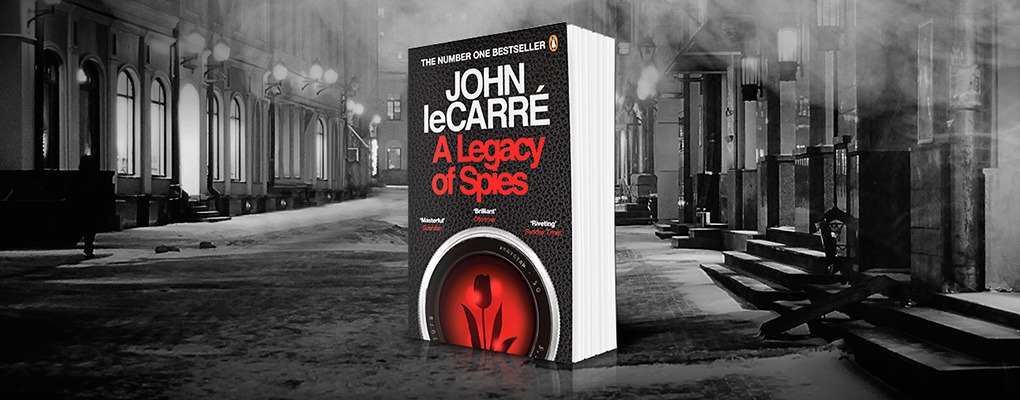

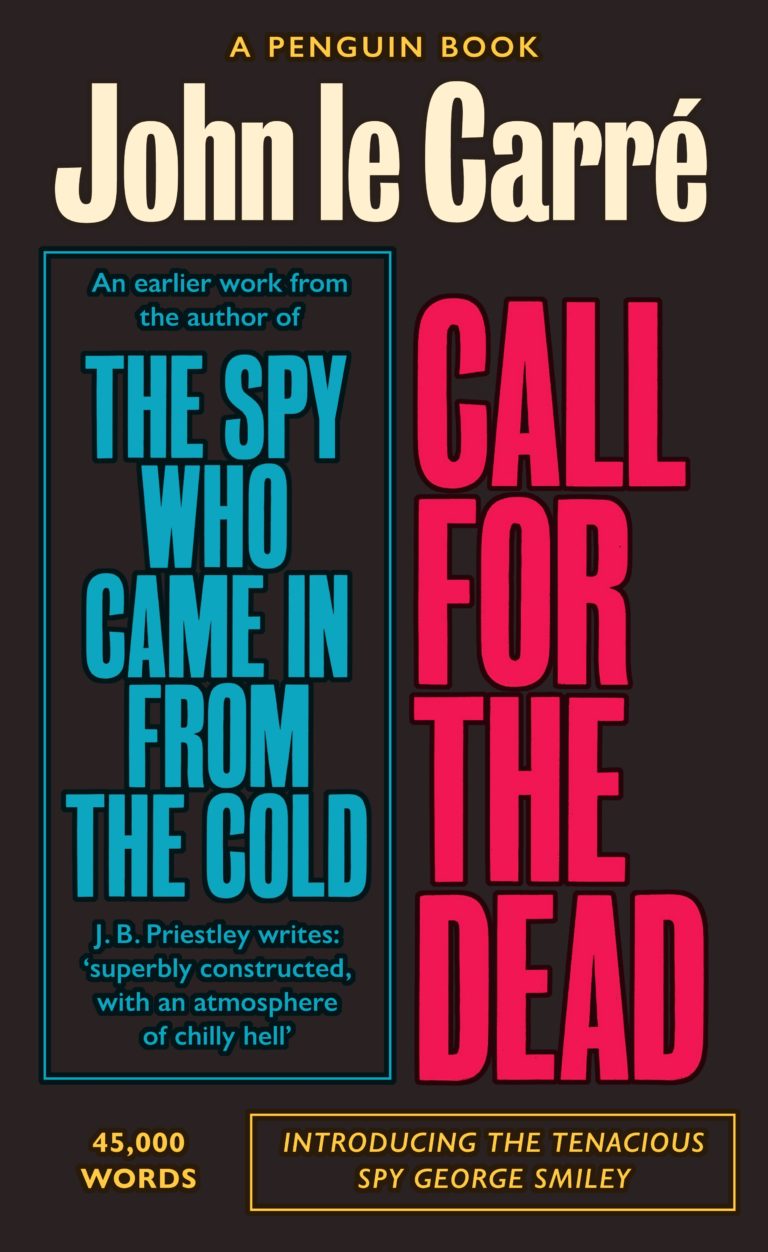
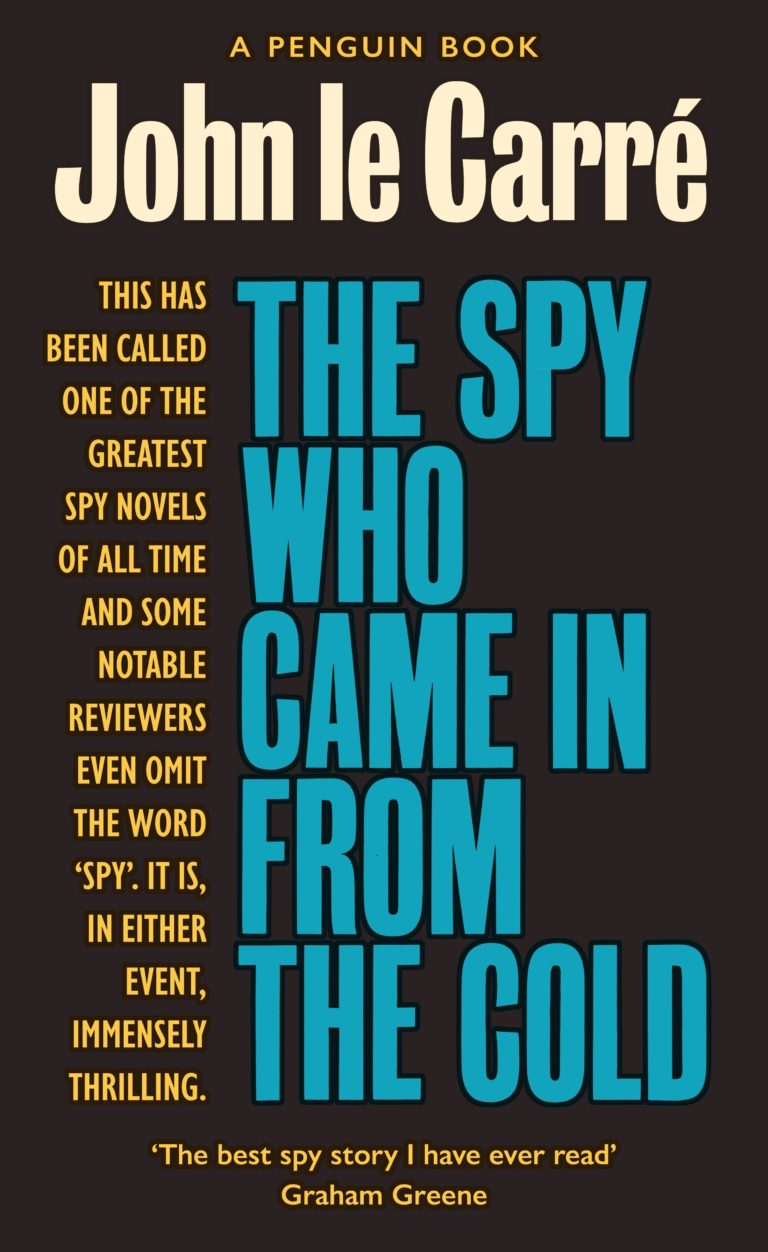
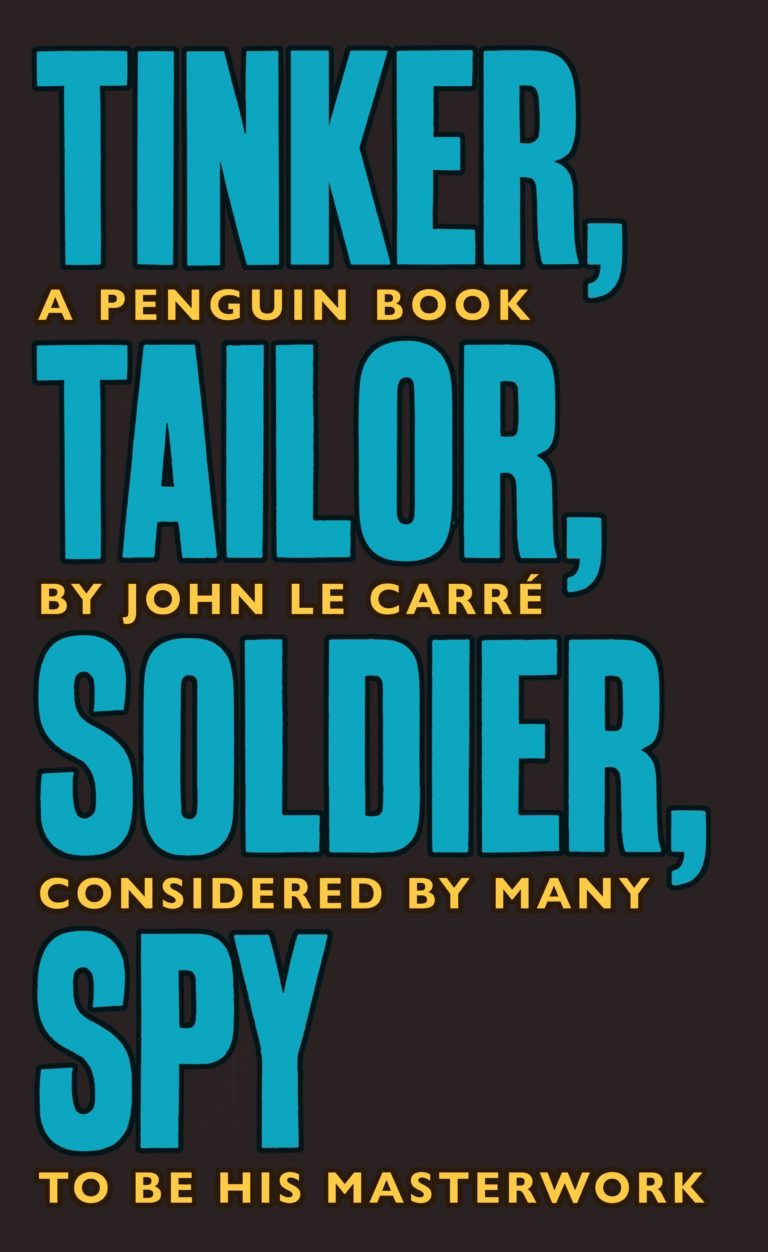
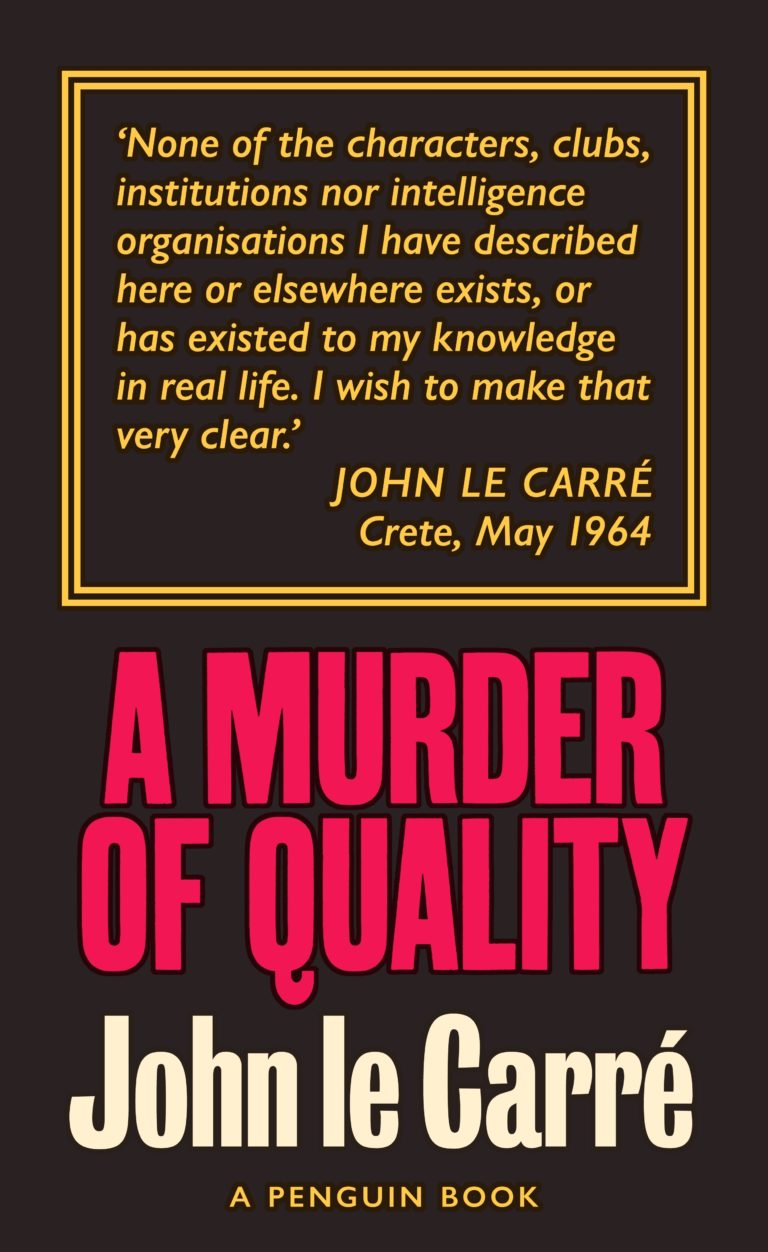
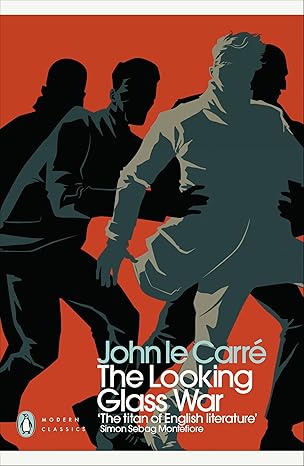

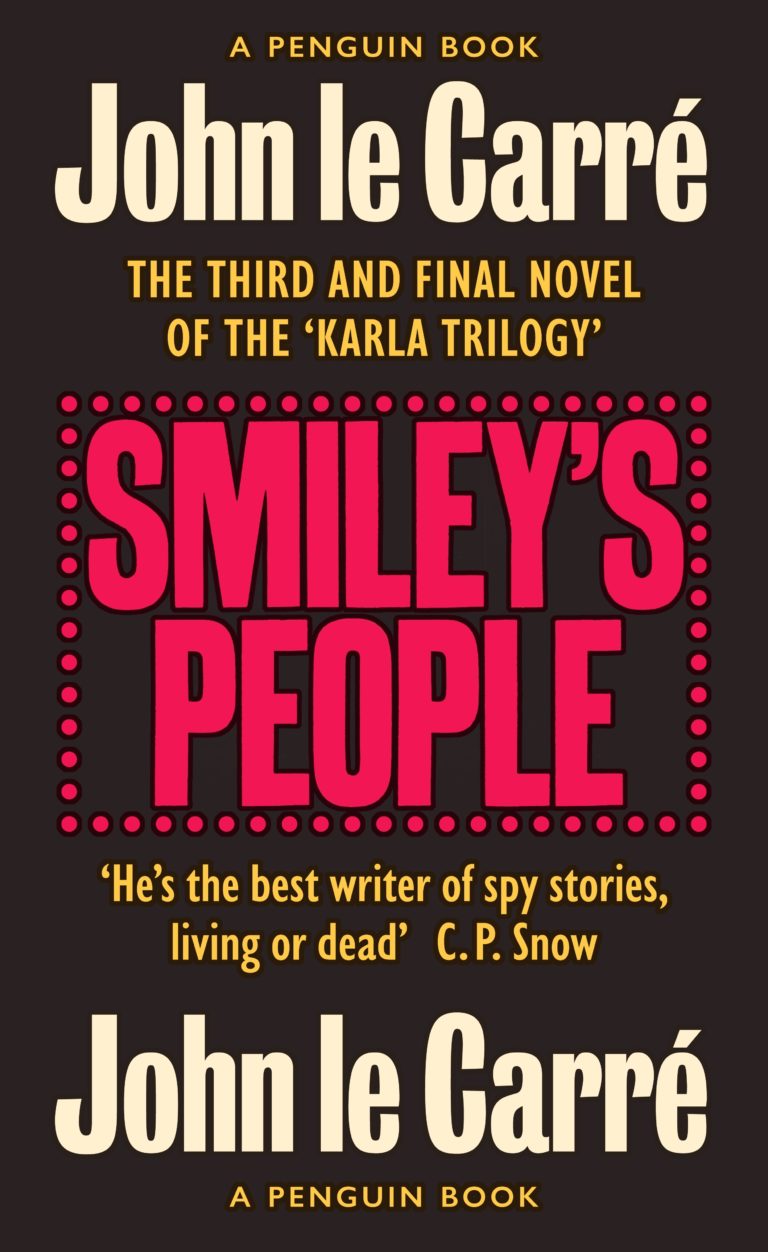
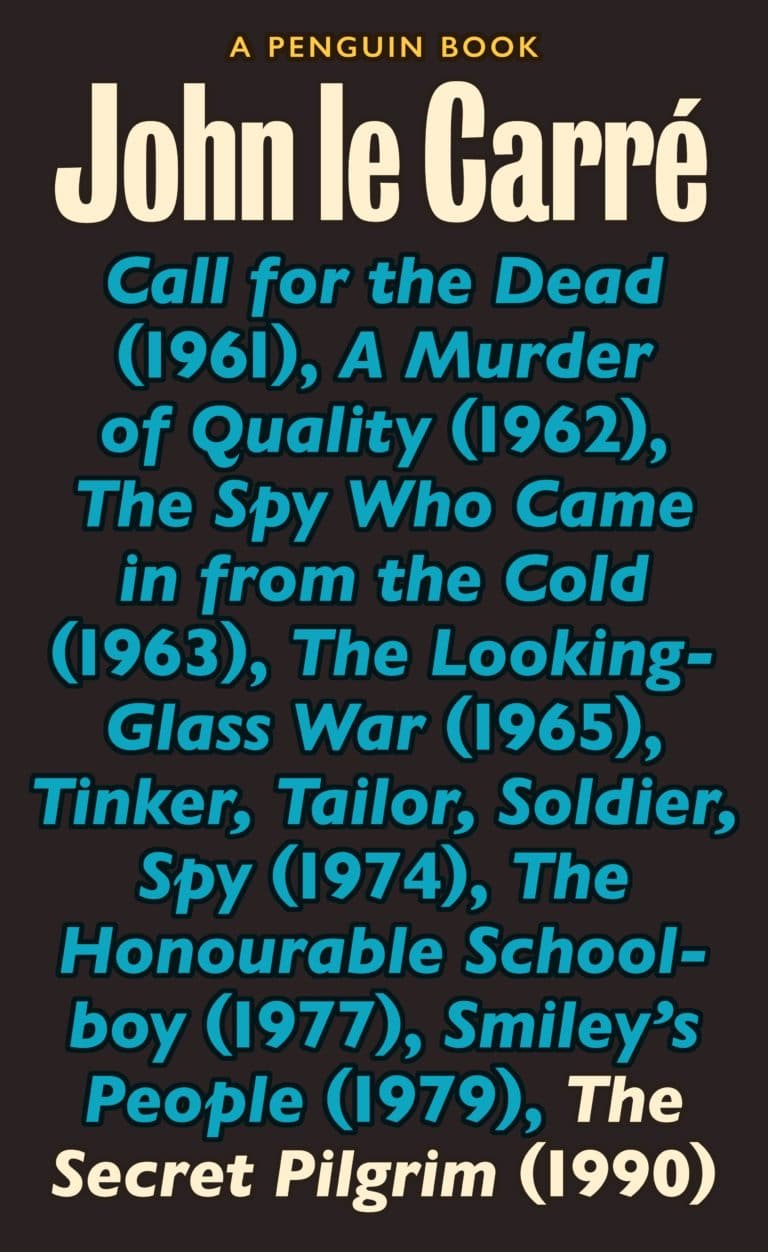
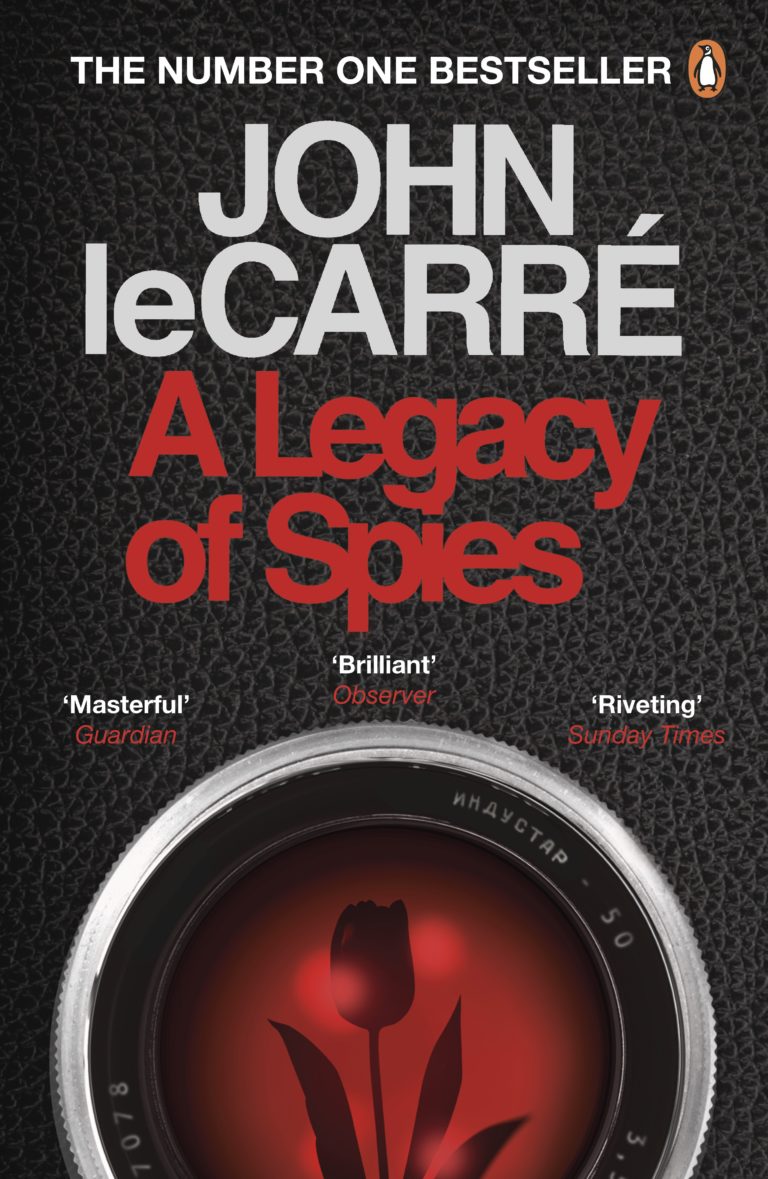
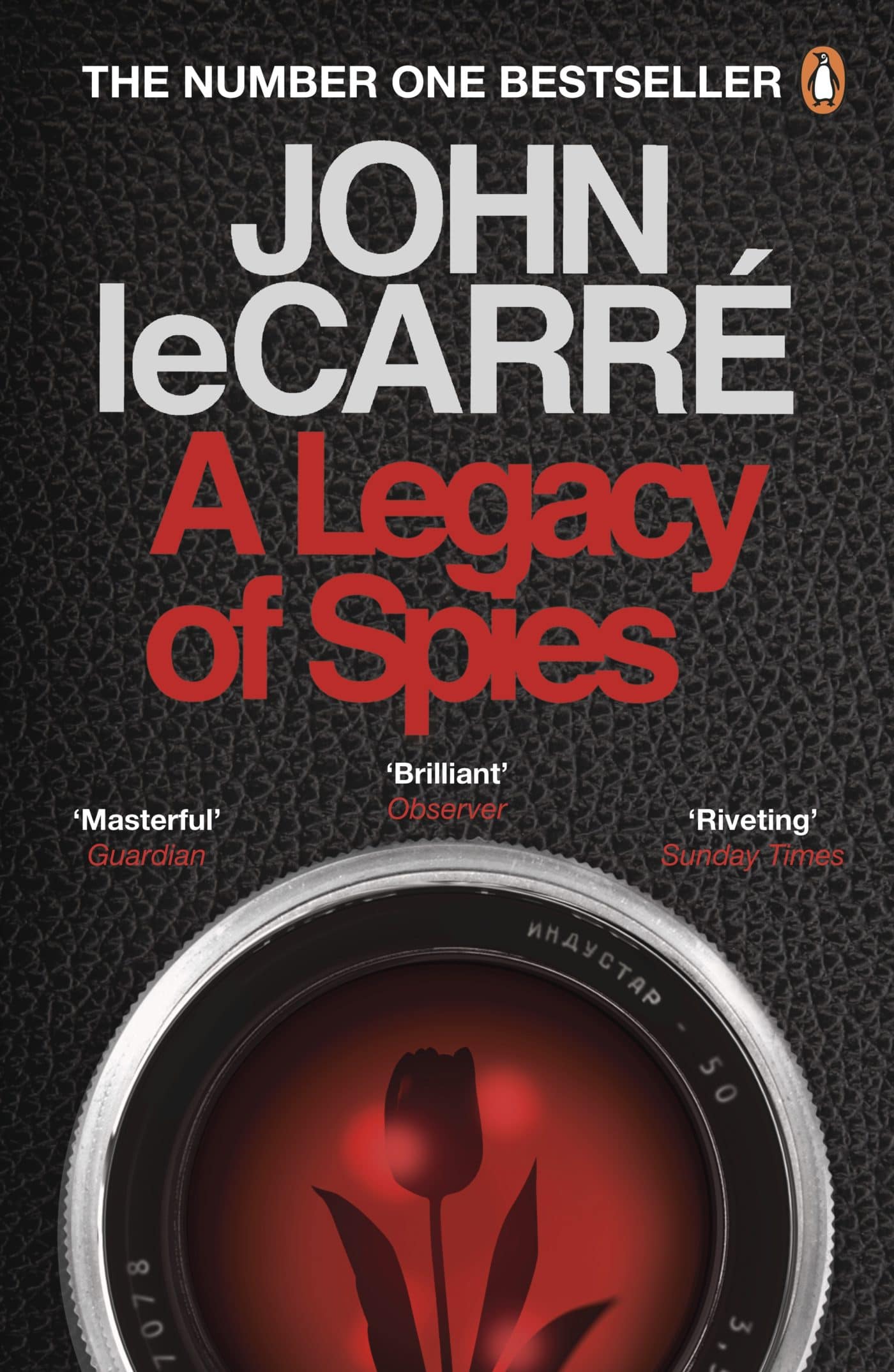
Wonderful synopsis and analysis. Thank you!